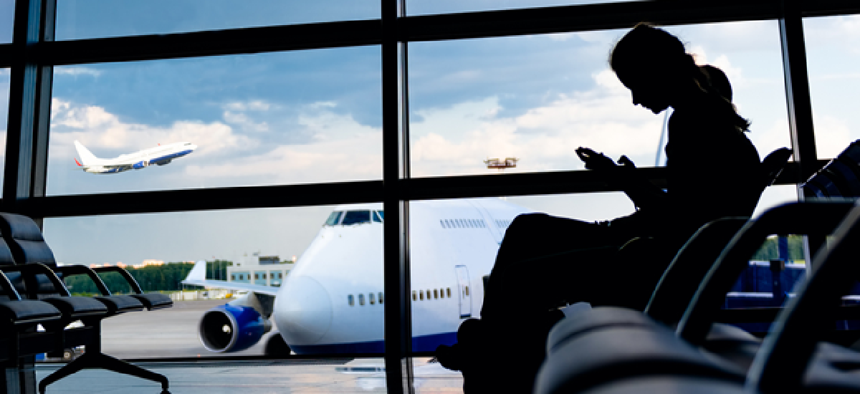DHS eyes social media as lever for ‘extreme vetting’


Connecting state and local government leaders
Browser histories, telephone contacts and social media use may help DHS supplement the sometimes spotty or even non-existent data on travelers available from their home countries.
Citizens from the countries named in President Donald Trump’s recent executive order restricting travel to the U.S. may have their browser histories, telephone contacts and social media use collected by the Department of Homeland Security in an effort to supplement the sometimes spotty or even non-existent data on travelers available from their home countries.
Those details emerged as DHS stepped up to try to calm nerves about President Donald Trump's Jan. 27 Executive Order closing down for 90 days travel to the U.S. by citizens of Iraq, Syria, Sudan, Iran, Somalia, Libya, and Yemen and to make the case that the rollout of the policy was more orderly than it looked on television news.
In a Jan. 31 press conference, DHS Secretary Gen. John Kelly, Acting Commissioner of Customs and Border Protection Kevin McAleenan, newly named Acting Director of Immigration and Customs Enforcement Thomas Homan and Acting Under Secretary of DHS Intelligence and Analysis David Glawe explained how the order was implemented once the president issued it.
"This is not travel ban," said Kelly of the executive order. "It's a temporary pause that allows us to better review the existing refugee and visa vetting," he said. The pause, said Kelly, will allow DHS to find the immigration system's strengths and weaknesses and encourage U.S. foreign partners to get on top of their collection of security data that allows travel to the U.S.
Kelly said DHS is considering how to construct a way to get a more complete picture of online activities of immigrants from trouble spots. A more thorough and in-depth accounting of the websites people have been visiting, their social media habits and even telephone contacts might be looked at as part of the process, he said.
The process, he added, is aimed at supplementing the sometimes spotty or even non-existent data gathering capabilities of law enforcement in some of the seven countries listed in the order.
The concern is that there are "a number of countries on the planet that don't have that kind of records keeping, police work, that kind of thing" that might alert U.S. authorities that a traveler constitutes a danger to the U.S., Kelly said. The seven countries covered by the executive order, "right now, for the most part, fall into that category,” Kelly said.
The idea for checking travelers’ social media activity was floated in June 2016 by Customs and Border Protection. CBP proposed adding a line to visa applications forms asking travelers to voluntarily submit information about their online accounts, including the provider and their social media identifier, according to a report in The Guardian.
The measure was finalized in late December, after which short-term visitors to the U.S. filling out the Electronic System for Travel Authorization form were prompted to provide their user names for their accounts on platforms including Facebook, Google+, Instagram, LinkedIn and YouTube, Politico reported.

NEXT STORY: Resolving trust issues in collaborative work ecosystems




